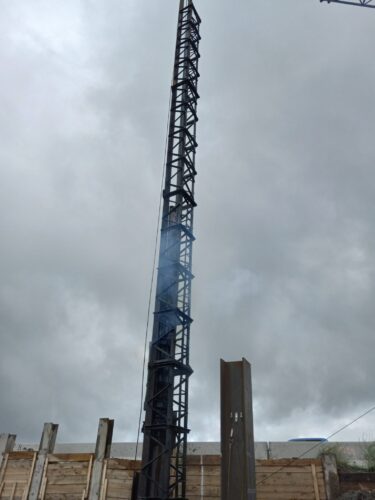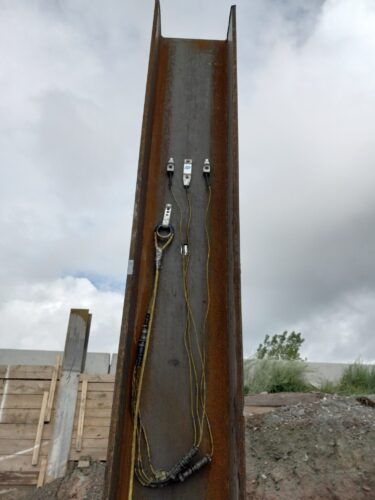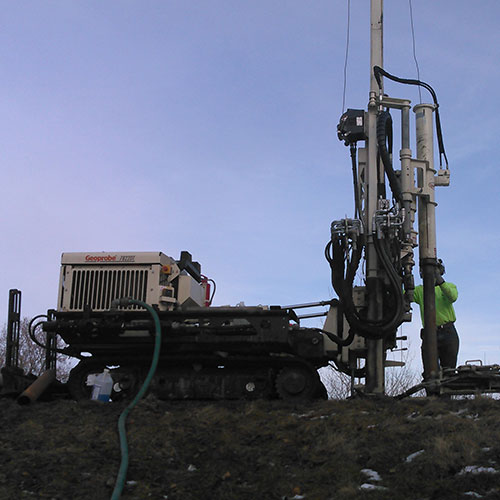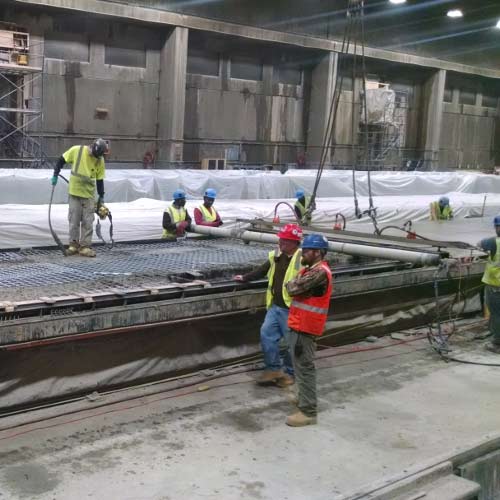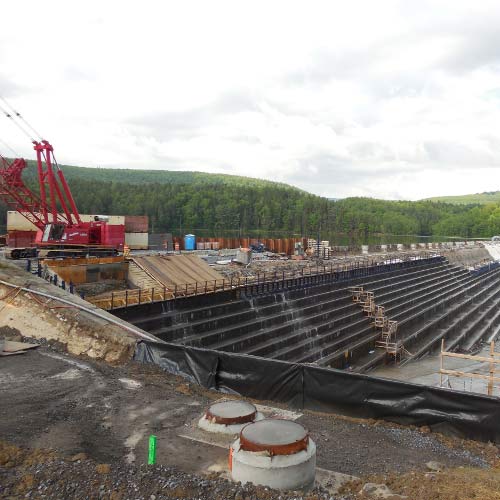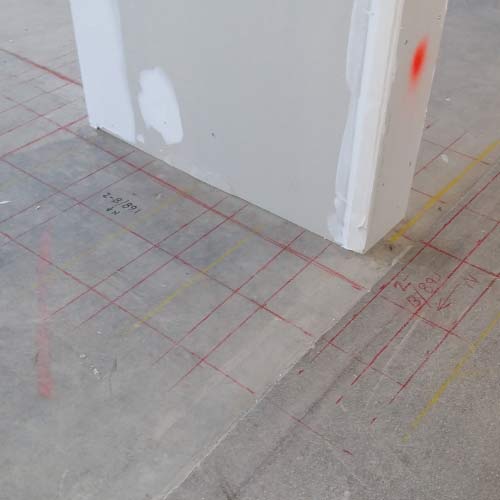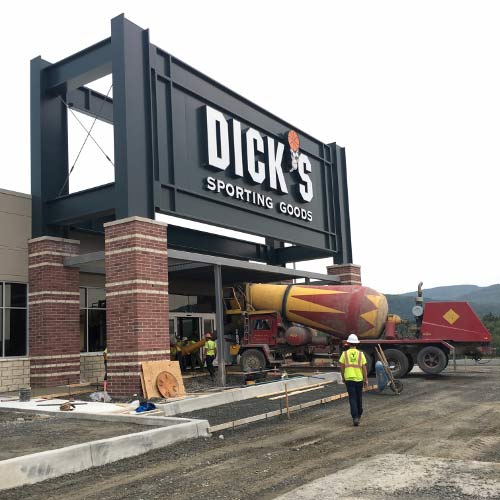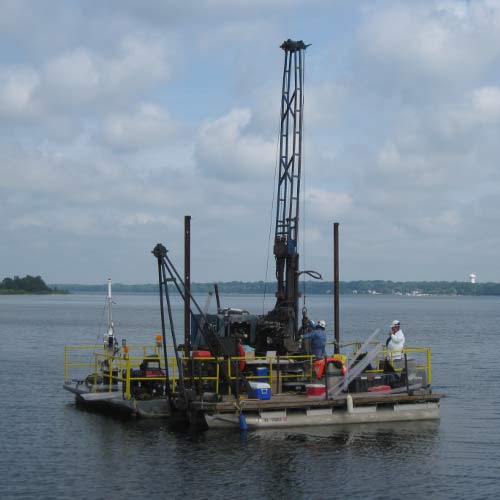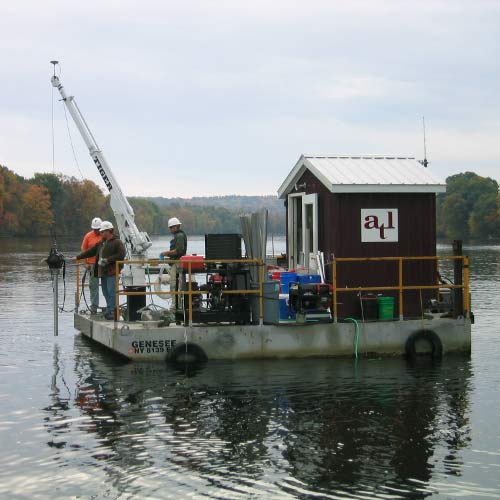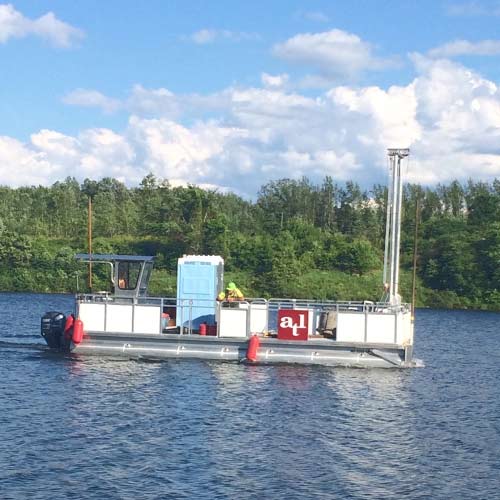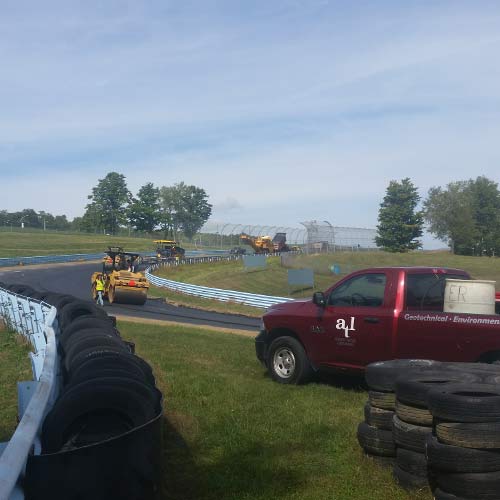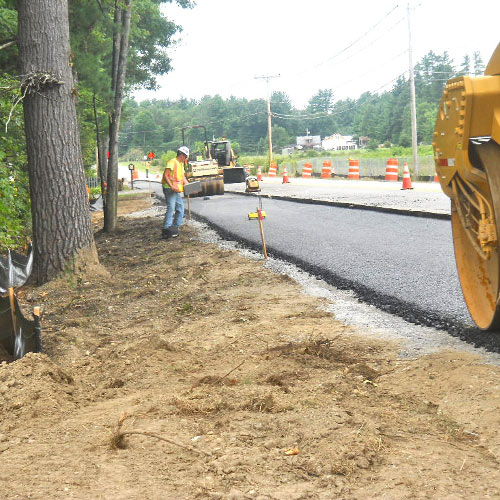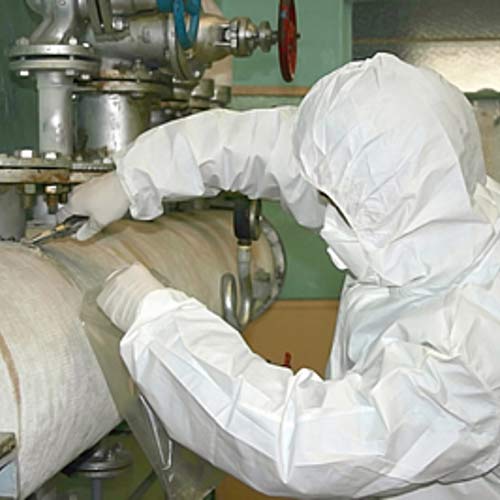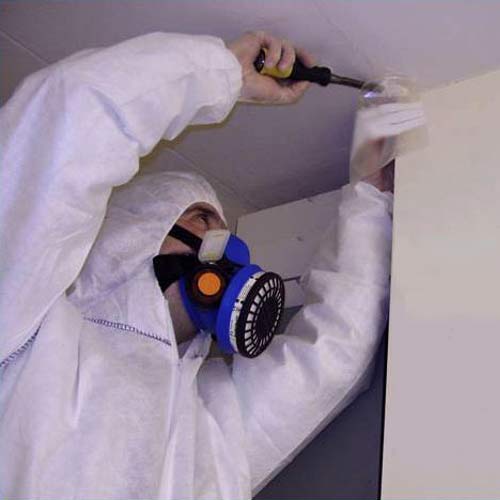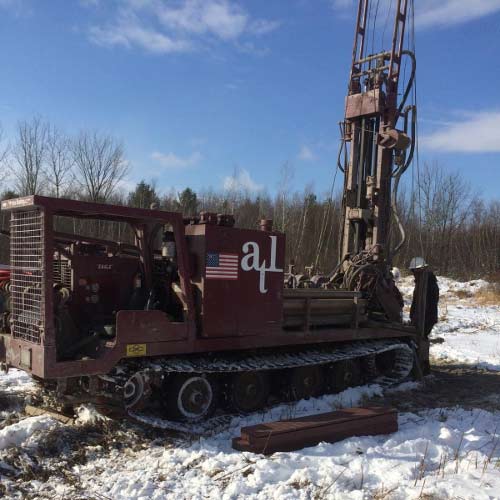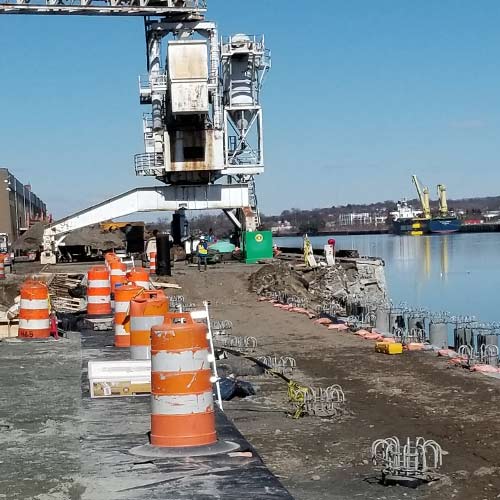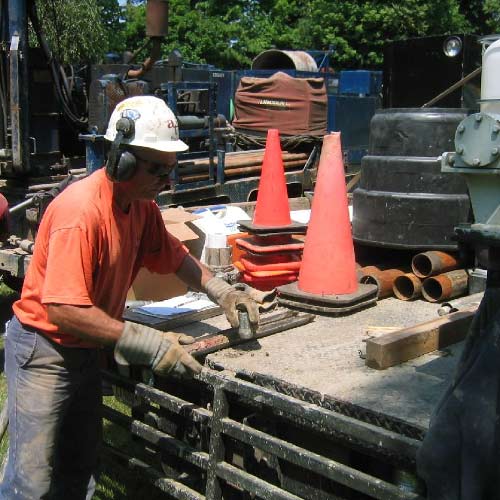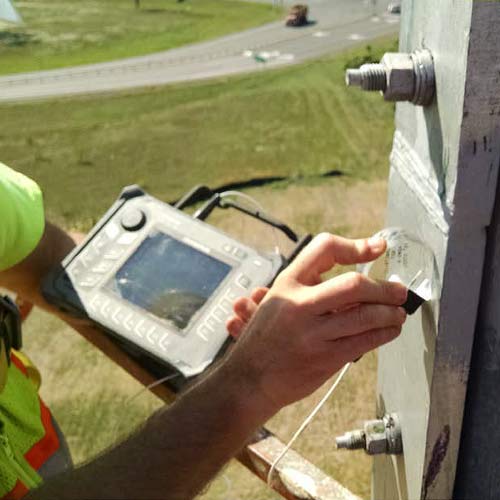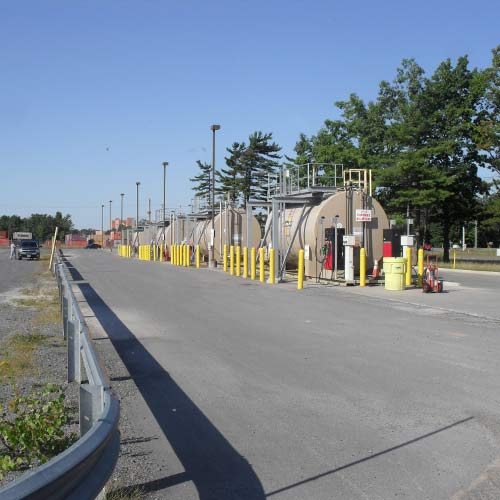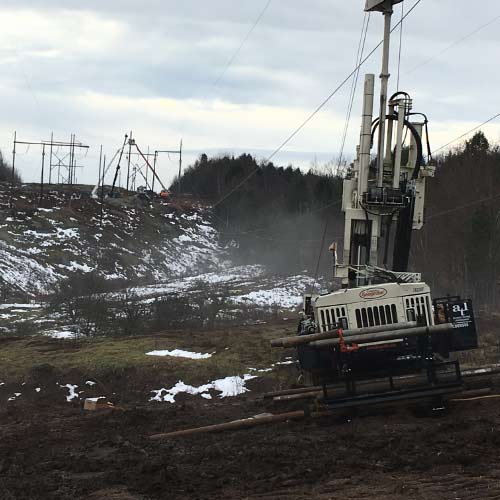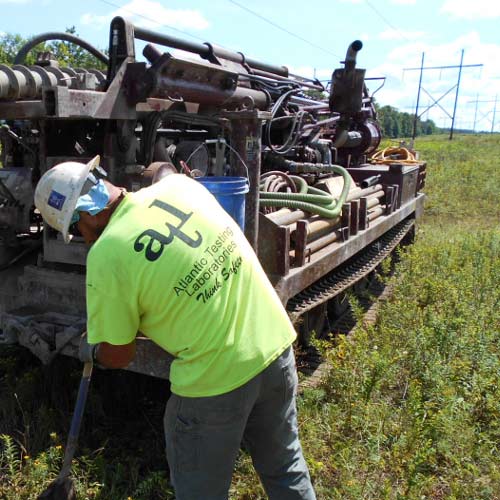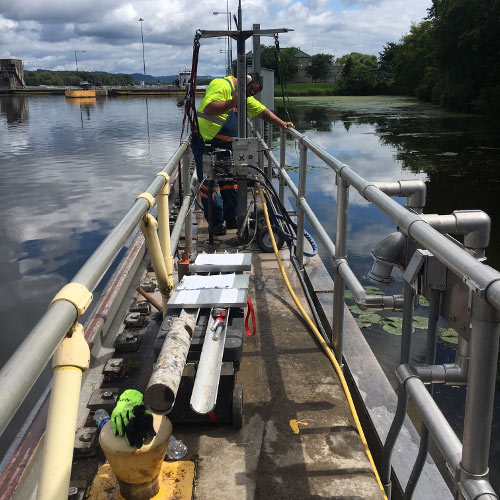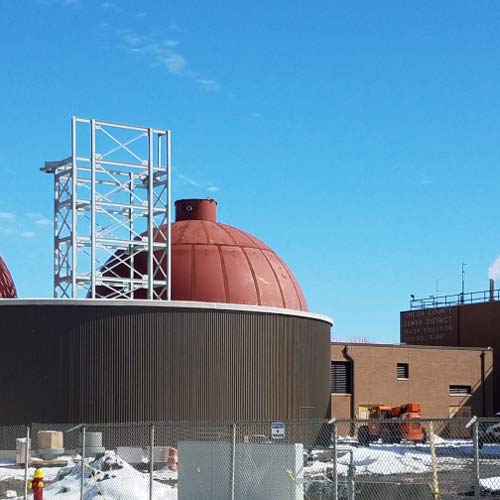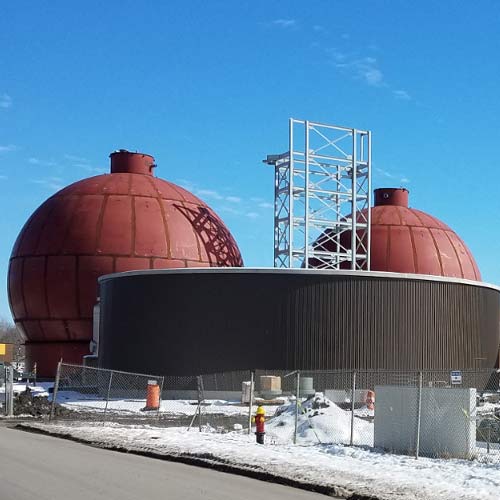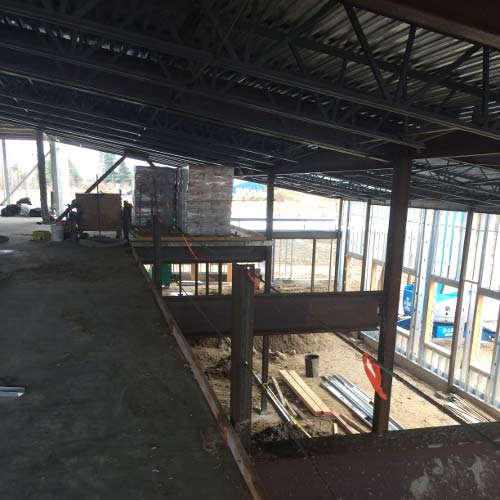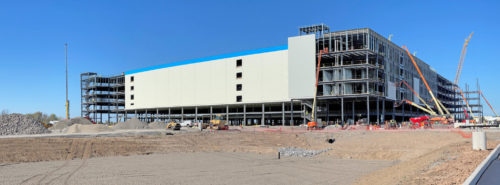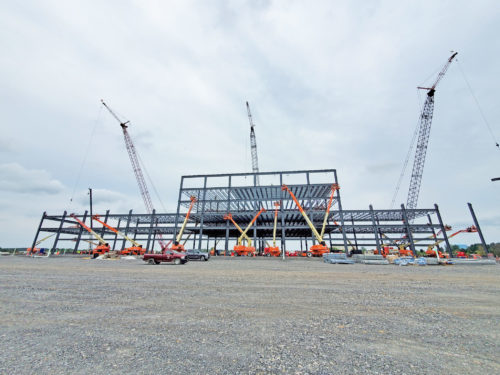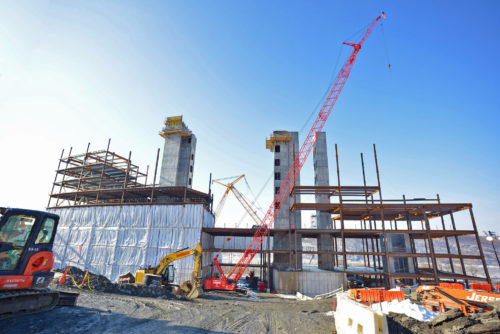Click the following link to view the PDF of this paper: Benefits of Dynamically Testing Driven Piles

Brian T. Barnes, PE
Senior Engineer
Atlantic Testing Laboratories
Dynamic testing is an efficient and cost-effective way to evaluate driven steel, timber, or concrete pile foundations during installation. Traditional static load tests require extensive set-up, use of reaction piles or a loading platform that increases testing costs, and limits the number of piles that can be tested on a project.
Dynamic testing is performed in accordance with ASTM D4945 “Standard Test Method for High Strain Dynamic Testing of Piles”. It consists of attaching strain transducers and accelerometers approximately 2 to 3 pile diameters below the top of the test pile and measuring the force and velocity during impact of the instillation hammer. During each hammer impact, the force and velocity data is processed by a Pile Driving Analyzer (PDA) system using the Case Method and monitored in the field by a trained engineer. The engineer evaluates the driving system performance, pile stresses and integrity, and the geotechnical pile capacity to establish driving criteria and pile lengths for a project. Several piles can be tested in a relatively short time period, resulting in time and cost savings over traditional static load testing. After the field data is collected, it is analyzed using signal matching software called the Case Pile Wave Analysis Program (CAPWAP) to refine and verify the field data.
Since dynamic testing is performed as the pile is being driven, driving can be stopped once the required pile capacity is achieved, optimizing the pile lengths during construction. Additionally, pile driving can be stopped if issues are detected with the driving system, or if excessive stresses are observed in the pile that could result in pile damage.
Re-strike testing can be performed after installation to evaluate the long-term pile capacity after a specified waiting period. Increases in pile capacity due to soil setup or decreases in pile capacity due to relaxation are evaluated by comparing the re-strike test results to those at the end of initial drive.
The primary benefits of dynamically testing driven piles include:
- Identifying driving system issues, such as low or excessive hammer energy
- Monitoring pile stresses and integrity during driving and verifying that the pile is not damaged at the time of installation
- Determining geotechnical pile capacity at the time of installation and after a waiting period to account for set-up or relaxation
- Testing set up is quick and several piles can be tested on a project in a relatively short time period, making dynamic testing economical
Dynamic test engineers must be experienced in field data collection and data interpretation, so that effective driving criteria and optimal pile lengths can be established that meet the project specifications for the foundation system.
If you have a construction project that could benefit from dynamic testing of driven piles, ATL, a WBE certified company, has experienced engineering staff who perform this testing. For more information, contact Brian Barnes, PE at 315-735-3309, info@atlantictesting.com, or visit AtlanticTesting.com.
|
ASSOCIATED SERVICES |
 |

